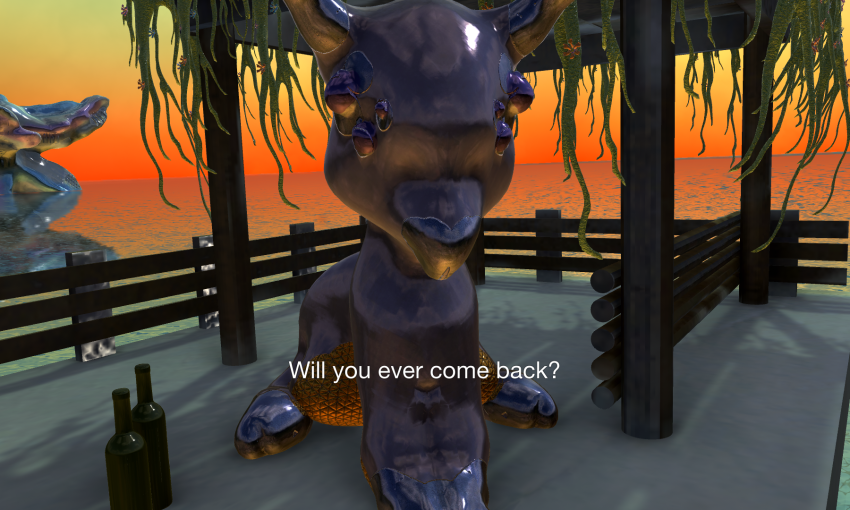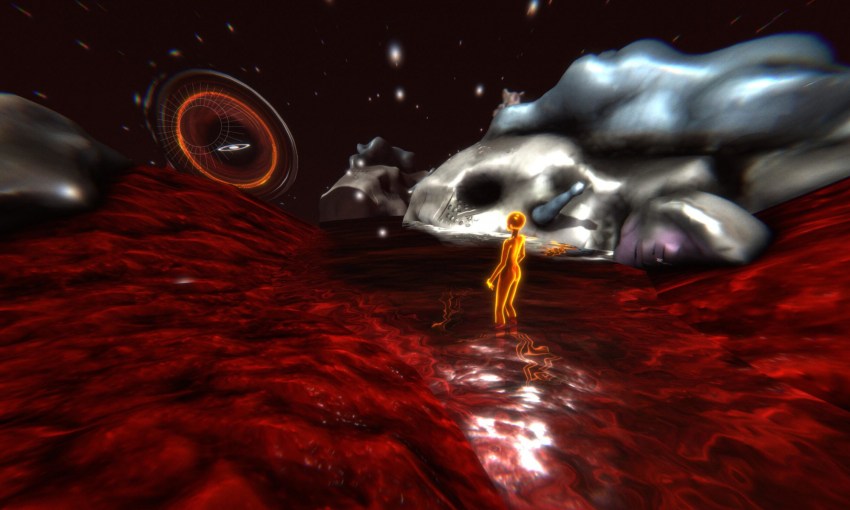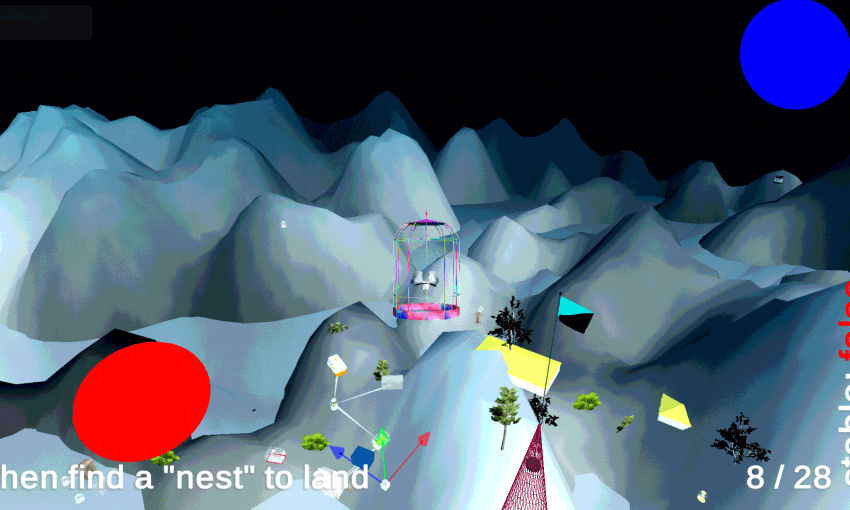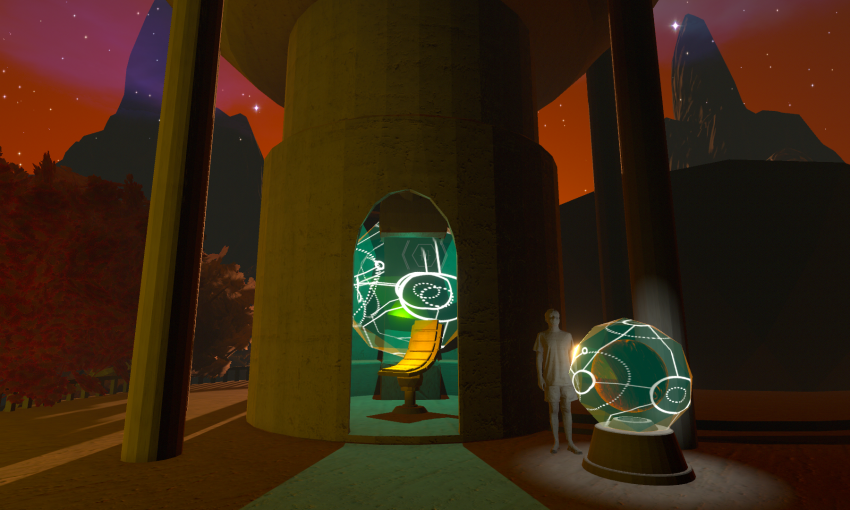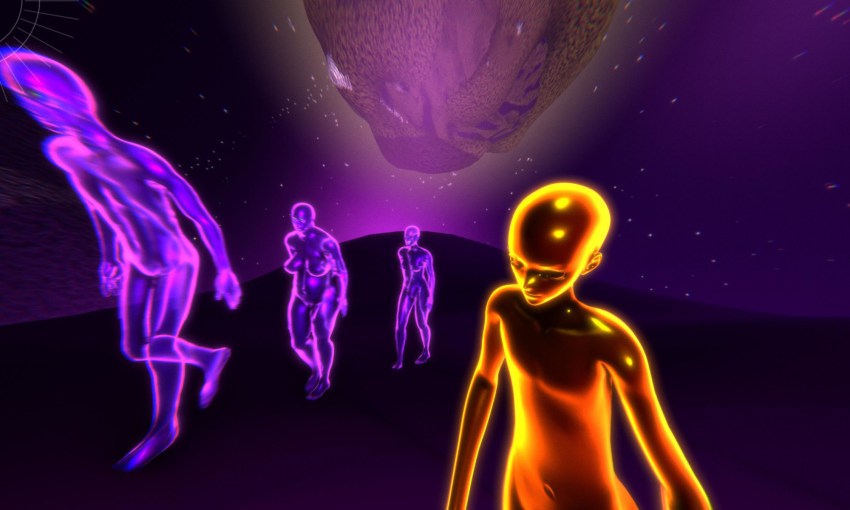While the world ostensibly falls apart, Adelaide expat artist Chloê Langford has helped create an acid-laced video game envisioning her ideal future and how fine art might actually become more interactive in the future.
Can fine art also be a video game?
Despite co-producing a thought-provoking computer game, Utopias: Navigating Without Coordinates, programmer and artist Chloê Langford doesn’t care for video games.
“I’m interested in making art or culture using computer graphics,” she explains via email from her home in Germany.
Chloê Langford is an Adelaide ex-pat who resides in Berlin and is part of the AAA Collective. Check out their new video game Utopias here.
“We can still use our phones or computers for creative experiences outside of work and social media.”
Chloê is part of an international software art collective called AAA, which, according to the group’s website, makes work that sits somewhere between fine art and video game production. Chloê’s entrepreneurial bent was first developed in Adelaide where she was a founding member of the Two Percent collective of artists, who were early pioneers of the Renew Adelaide scheme and helped establish CityMag’s former headquarters on Clubhouse Lane – Magazine Gallery.
Chloê’s art practice has always dovetailed with broader social movements and zeitgeists, so when she reached out to CityMag from Berlin with news she had helped create a video game for Windows computers and that VICE had written about it – we weren’t surprised. Impressed, absolutely, but not surprised.
Through lectures, performances and graphics, AAA Collective’s nine members aim to expand expectations of fine art and video game production, and what they can do once combined.
After a two year period of creation, AAA has released their latest work, Utopias, in which each artist has created an ideal world.
“Although we created a series of individual utopian visions, each of us worked on each other’s world, helping one another to realise them,” the game’s website states.
“This is our attempt to role play our way to utopia.”
Chloê says the game, filled with ethereal characters in imagined galaxies, was really an experiment. While creating the worlds, each artist pursued their individual needs, but combining the pieces into a linear narrative then created friction.
“A major motivation for our collaboration is to find alternative methods for making video games while avoiding the exploitative and creatively stultifying software industry,” the Utopias website says.
“During the long development time of the project, we became aware that ‘utopia’ was not necessarily a place or an idea we could attain but rather a process of trying to navigate the territory that lies between us and change.
“This very much describes the practical process of learning to organize a collective. Utopias is a viewport into this process.”
Through the game’s production process, AAA came to understand what their ideal future looks like, and it’s one of cohesion.
“It’s not really a goal-oriented game,” Chloê says.
“You don’t need to solve puzzles or anything to be able to progress, so if you’re put off by that aspect of games and want something a bit more open-ended – maybe you’ll like this.”
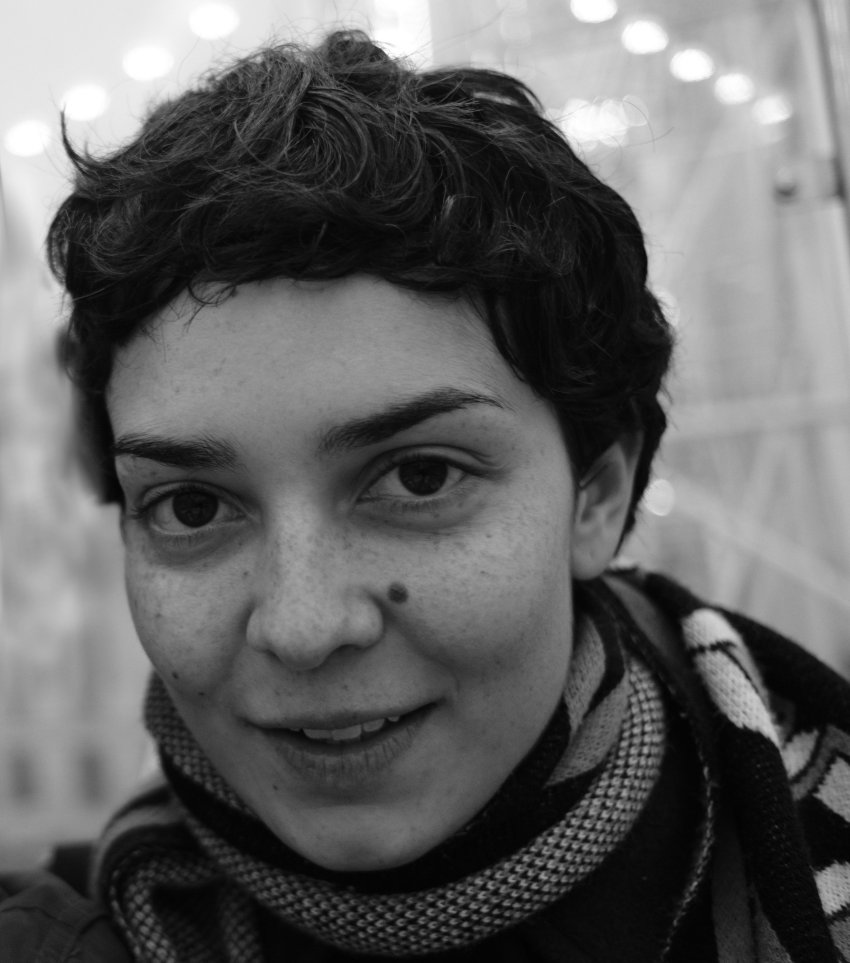
Outside of AAA, artist Chloe Langford helps the Charité hospital in Berlin communicate their research through interactive apps and videos
When AAA released the experimental game in the middle of May, Germany had just started easing its COVID-19 restrictions.
During our conversation, Chloê notes restaurants had recently opened for the first time, and some councils have begun to allow eateries to offer al fresco dining. This made the streets feel alive again, she says, and provides a much-needed change of scenery from her endless city walks and country cycling.
She says Berlin had communicated to its constituents “pretty well” about COVID-19 cases and limitations, so she’s also feeling quietly confident life will return to normal relatively soon.
Utopias arrived at a pretty dire time in modern history – in Australia, we’ve lived through what’s been described as the worst year in a century for our environment, creating widespread harm that was then compounded by the global pandemic.
Despite the game’s premise being to create a utopia, Chloê says she doesn’t have a picture of an ideal world.
Instead, she has a few humble hopes for the future.
“I hope we can find a way to mitigate the effects of the climate crisis in a fair and just way,” she says.
“And that we can develop new ways of governing our societies that are based on mutual aid and a more equal distribution of power.”



